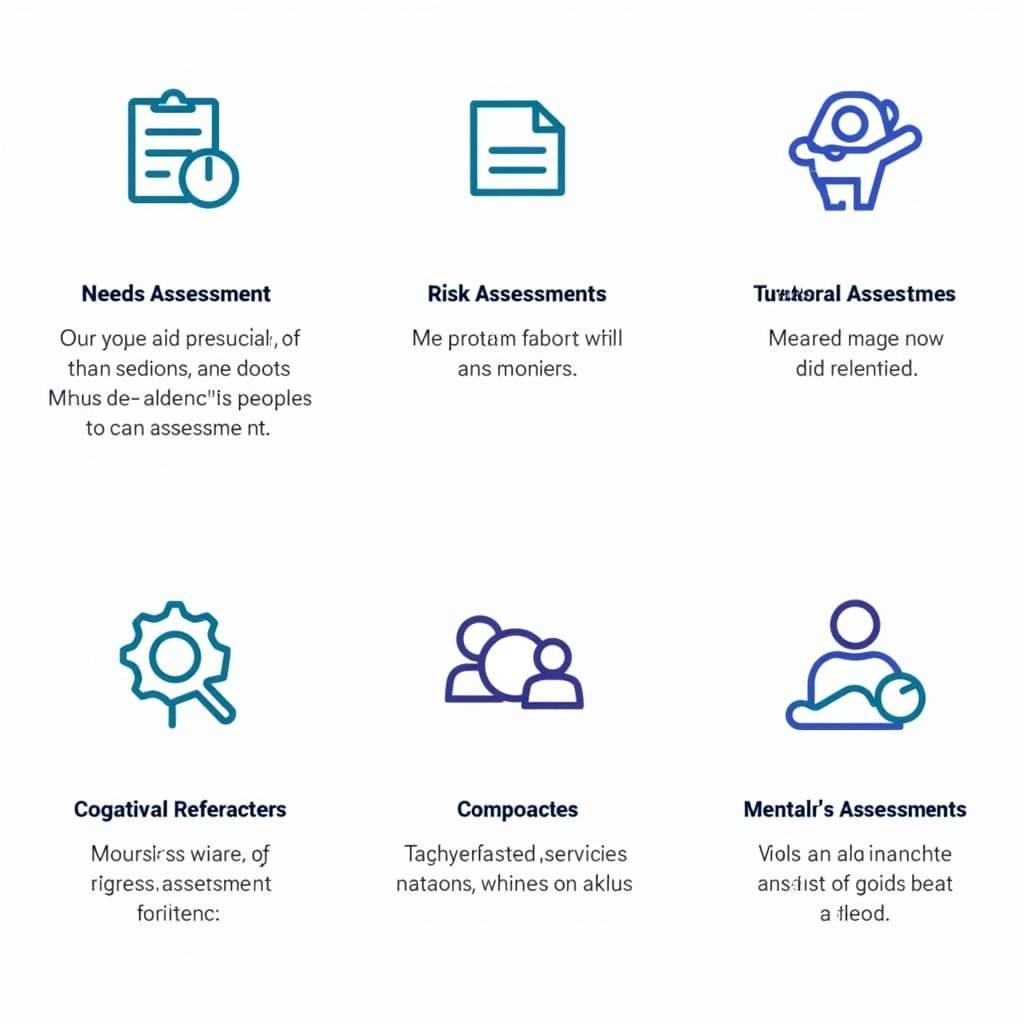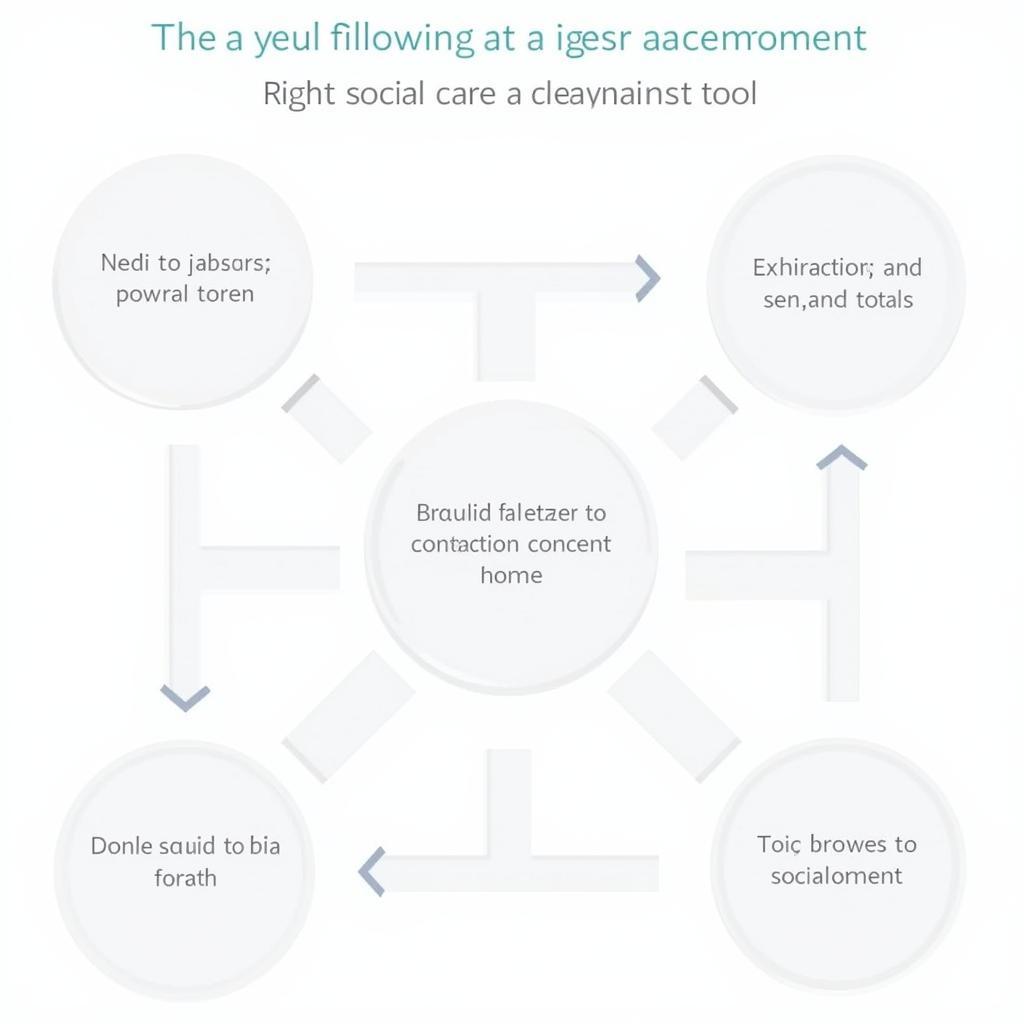Social Care Assessment Tools are essential for providing effective and personalized support to individuals in need. These tools help professionals understand an individual’s unique circumstances, strengths, and challenges, leading to better care planning and improved outcomes. This guide will explore various aspects of social care assessment tools, their importance, and how they contribute to better social care practices.
Understanding Social Care Assessment Tools
Social care assessment tools encompass a wide range of methods and instruments used to gather information about an individual’s social, emotional, physical, and mental well-being. These tools can include questionnaires, interviews, observations, and standardized assessments. The information gathered helps professionals identify needs, develop care plans, and monitor progress.
Types of Social Care Assessment Tools
There are various types of assessment tools tailored to specific needs and contexts. Some common examples include:
- Needs assessments: Focus on identifying an individual’s current needs and support requirements.
- Risk assessments: Evaluate potential risks and vulnerabilities to ensure safety and well-being.
- Functional assessments: Assess an individual’s ability to perform daily activities and their level of independence.
- Cognitive assessments: Evaluate cognitive abilities, such as memory, problem-solving, and decision-making.
- Mental health assessments: Assess mental health status and identify any mental health needs.
 Different Types of Social Care Assessment Tools
Different Types of Social Care Assessment Tools
Why are Social Care Assessment Tools Important?
Using standardized and validated social care assessment tools provides numerous benefits:
- Improved Accuracy: Structured assessments reduce subjectivity and increase the accuracy of gathered information.
- Person-Centered Care: Tools facilitate a deeper understanding of individual needs, promoting person-centered care planning.
- Better Communication: Assessments provide a common language for professionals to communicate about an individual’s needs and progress.
- Enhanced Accountability: Documented assessments enhance accountability and transparency in care provision.
- Outcome Measurement: Tools enable professionals to track progress and measure the effectiveness of interventions.
How to Choose the Right Assessment Tool
Selecting the appropriate assessment tool depends on several factors, including the individual’s specific needs, the purpose of the assessment, and the context of care.
- Consider the individual’s age and cognitive abilities.
- Ensure the tool is culturally appropriate and sensitive.
- Choose a tool that is reliable and valid.
- Consider the practicality of administering the tool.
 Factors to Consider When Choosing a Social Care Assessment Tool
Factors to Consider When Choosing a Social Care Assessment Tool
Implementing Social Care Assessment Tools Effectively
Effective implementation requires proper training and ongoing evaluation:
- Train staff on how to administer and interpret the tool.
- Ensure assessments are conducted in a comfortable and private environment.
- Involve the individual and their family in the assessment process.
- Regularly review and update assessment tools to ensure they remain relevant and effective.
- Use the assessment findings to inform care planning and decision-making.
“Regularly reviewing and updating assessment tools is crucial for ensuring they remain effective and relevant to evolving needs,” says Dr. Emily Carter, a leading expert in social care assessment. She emphasizes the importance of using a diverse range of tools to capture the full picture of an individual’s circumstances.
Future Trends in Social Care Assessment Tools
The field of social care assessment is constantly evolving. Emerging trends include:
- Increased use of technology: Digital assessments and data analytics are transforming how assessments are conducted and utilized.
- Focus on outcome measurement: There is a growing emphasis on using assessment data to measure outcomes and demonstrate the impact of social care services.
- Integration of data across services: Sharing assessment data across different agencies and services can improve care coordination and avoid duplication of efforts.
 Future Trends in Social Care Assessment Tools
Future Trends in Social Care Assessment Tools
Conclusion
Social care assessment tools play a crucial role in providing high-quality, person-centered care. By utilizing appropriate assessment methods and interpreting the findings effectively, professionals can empower individuals to achieve their goals and improve their overall well-being. Using social care assessment tools effectively contributes to a more efficient, responsive, and compassionate social care system.
FAQ
- What is the purpose of a social care assessment?
- How often should social care assessments be conducted?
- Who can conduct a social care assessment?
- Are social care assessments confidential?
- How are social care assessment tools developed?
- What are some common challenges in using social care assessment tools?
- How can technology improve social care assessments?
Need support? Contact us via WhatsApp: +1(641)206-8880, Email: [email protected] or visit us at 910 Cedar Lane, Chicago, IL 60605, USA. We have a 24/7 customer support team.

Leave a Reply